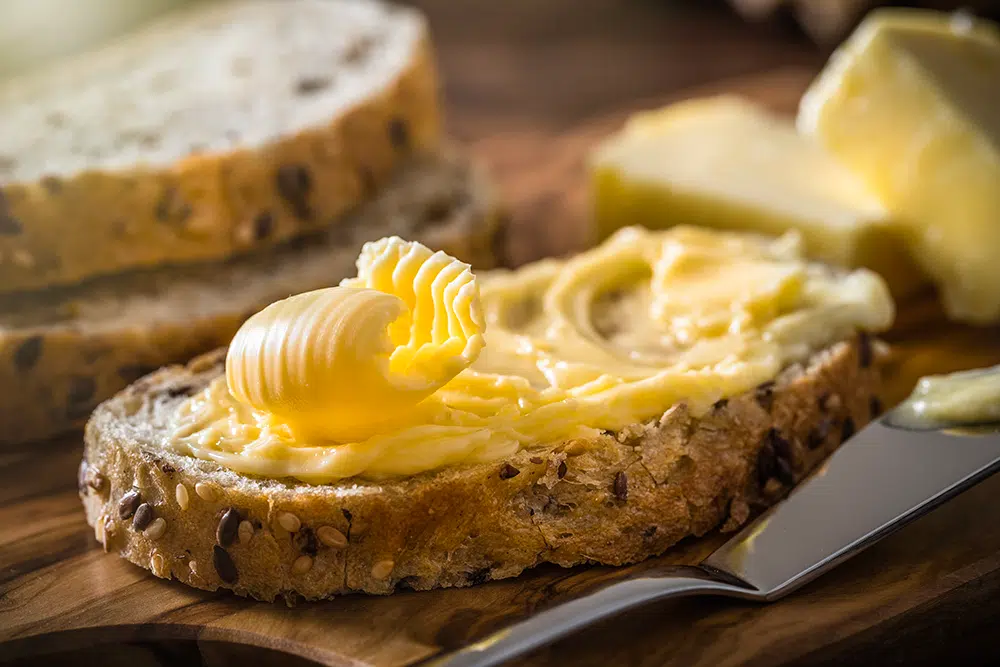If your doctor has prescribed Mounjaro to help manage your type 2 diabetes, you may have looked into the changes you'll need to make to your diet. You may have stopped drinking liquids with your meals and reduced your servings but are unsure what foods to avoid. Avoiding specific foods can help you get better results and lessen side effects. Read below as our team at the biostation in the South Florida area shares some of the foods you should avoid if you're taking Mounjaro.
Bread and Other Carbohydrates
Bread and other foods that are rich in carbohydrates can pose challenges for those taking Mounjaro as they digest quickly, so you'll be hungry again sooner. While some carbohydrates, such as those in fruit, are still necessary, you may find that protein, fiber, and healthy fats provide a better energy source. If you still choose to eat bread, stick with whole-grain options instead of white bread, as whole grains take longer to digest and won't spike your blood sugar.
Depending on your habits, you may find that steering clear of bread makes breakfast challenging. If you're looking for ideas for a good breakfast that's lower in carbs, consider fixing a low-carb pita or tortilla wrap or have eggs with a side of fruit. Turkey bacon may also be a suitable companion for a wrap and make your meal more satisfying.
Several options are available for a lunch not packed with carbs. While you need to steer clear of bread, rice, pasta, and potatoes, you can choose from a wide variety of salads and wraps, have a hamburger wrapped in lettuce, or opt for grilled chicken. Sushi without rice is also a safe choice.
Alcohol
Cutting back on alcohol is a great idea while taking Mounjaro. Drinking alcohol with your medication can have dangerous side effects that make you feel ill. And alcohol can minimize the results you see from using Mounjaro. You may notice increased weight gain if you continue to drink alcohol while taking your medication.
Carbonated Beverages
Clear, cold drinks are a better option than dark sodas. Anything with carbonation will likely make you feel bloated, and stomach pain can cause discomfort. Low-calorie and low-sugar beverages are the best. Most teas are safe to drink, and you can still enjoy coffee. It's best to stick to water if you'd like to avoid calorie intake from drinks, and it's a good idea to wait 30 minutes after meals before drinking anything.
Sugary Foods and Drinks
Eating and drinking things that are high in sugar can cause nausea and other undesirable side effects. Sugary food items are hard to digest when you're taking Mounjaro. And sugar isn't a friend to any of your weight-loss goals.
Avoiding sugary foods doesn't necessarily mean avoiding snacks altogether. You may find that your blood sugar sometimes dips because of diabetes and your medication, so finding healthier alternatives with less sugar is a good idea.
Raw Vegetables
It's best to avoid raw vegetables when you take Mounjaro. You should also avoid eating the skin of cooked or uncooked vegetables. Eating most vegetables that grow above the ground is safe, and you should avoid potatoes and carrots. If you notice any negative effects after eating vegetables, take note of them and avoid those foods in the future.
Fibrous Vegetables
Fibrous vegetables can be unhealthy if you're using Mounjaro. Fibrous vegetables include celery, broccoli, cabbage, and corn. Some of these vegetables can cause bloating and gastric distress, making you uncomfortable after meals. Stick to veggies like peas, green beans, and asparagus, for instance.
Red Meat
It's important to avoid red meats, such as beef, lamb, pork, and veal, while taking Mounjaro. Some people have noticed that their side effects worsened significantly after eating red meat. Others have experienced nausea or diarrhea after eating beef. It's also essential to keep away from tougher meats that contain gristle. You might try eating a small portion of meat to see if you have a reaction. You can still have poultry and ground lean meats. Fish and eggs are other great protein sources.
Fried Foods
While fried foods may be tasty, they aren't a good option for those taking Mounjaro. Greasy, fried foods are high in fat and difficult for the body to digest. They also tend to be heavy in carbohydrates. If you're taking Mounjaro, you may experience nausea when eating these foods. So it would be best not to eat French fries, potato chips, hamburgers, pizza, fried chicken, donuts, and more.
Spicy Foods
Avoid any foods with heavy seasoning or those that are spicy. You'll likely find you react better to bland foods, so it's best to stick with eating plain foods until you can be sure how your body is likely to react. Spicy meals can cause gastric distress and symptoms like diarrhea.
Some Nuts & Seeds
Seeds are a bad idea when you're using Mounjaro. Avoid eating sunflower seeds, pumpkin seeds, and flax seeds. You should also avoid most nuts, as they can cause abdominal discomfort and distress shortly after eating.
Some Fruit
You should steer clear of all dried fruits, papaya, mango, kiwi, pineapple, bananas, and grapes. But there are still other fruits you can eat all day, including cantaloupe, peaches, nectarines, pears, and a variety of berries. Canned fruits are generally safe.
Popcorn
Salty foods can cause a strong reaction when you're taking Mounjaro. Some Mounjaro users have experienced food aversions to popcorn, feeling ill after indulging in it. If you do try it, avoid adding butter and salt until you know how your body will react.
If you're taking Mounjaro, it's a good idea to talk with a professional about which foods to eat and which to avoid. At the biostation, we recognize that you may have many questions about your diet and how to stay healthy. So if you live in the South Florida area, including Boca Raton, Delray Beach, Miami, Tampa, and Fort Lauderdale, let our knowledgeable team help you.
 East Delray, Florida
East Delray, Florida West Delray, Florida
West Delray, Florida The Boca Raton, Florida
The Boca Raton, Florida Midtown Miami, Florida
Midtown Miami, Florida Carillon Wellness Resort
Carillon Wellness Resort  Williams Island
Williams Island  Midtown Tampa, Florida
Midtown Tampa, Florida Life Time
Life Time Grand Wailea
Grand Wailea  NOW OPEN
NOW OPEN  COMING SOON
COMING SOON 
